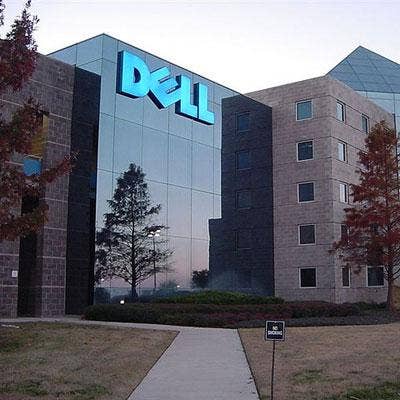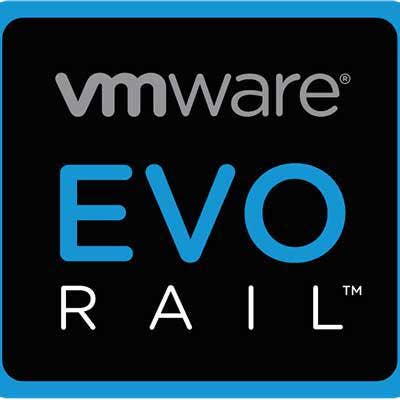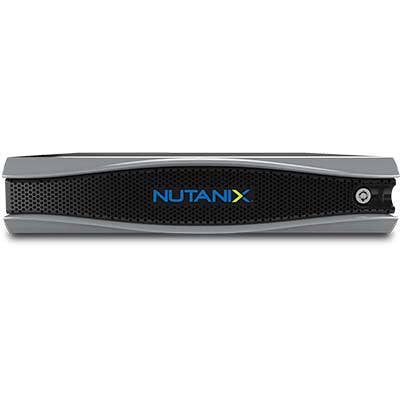6 More Reasons Why VMware Thinks Its Hyper-Converged Tech Beats Nutanix

Stirring The Pot
Chuck Hollis, chief strategist for VMware's storage and availability business, is once again stirring things up with Nutanix, the hyper-converged startup that's trying to take a bite out of its data center business.
In a series of blog posts earlier this month, Hollis published details of head-to-head performance testing VMware conducted recently comparing its VSAN storage virtualization technology and the storage technology Nutanix uses in its hyper-converged offering.
According to VMware's data, VSAN is cheaper, better-performing and better-equipped to handle heavy workloads than Nutanix's technology,Hollis said in the blog posts.
Hollis said he's not sharing this information to antagonize Nutanix, and merely wishes to help customers make informed decisions. And yet, his flurry of blog posts -- two of which were posted during Nutanix's user conference in Miami last week -- show that the startup is very much in VMware's head these days.
Here are six key points Hollis raised in the blog posts. (Nutanix declined to comment on the points Hollis raised.)

6. VMware Is Cheaper Than Nutanix On Supermicro
For the testing, Hollis said, VMware set up two identical four-node hyper-converged clusters, with one equipped with Nutanix technology and the other with native vSphere and VSAN.
Nutanix's NX-3460-G4 configuration running on Supermicro servers has a list price of $201,501 for hardware, software and three years of customer support, while the same configuration running VSAN costs $62,159, Hollis said in a June 5 blog post.
Even with a 50 percent discount, Nutanix's hyper-converged configuration costs $100,751, while VMware's is $48,187, said Hollis. This amounts to a "huge premium" for the Nutanix offering, Hollis added.
"When software is decoupled from hardware, customers win," said Hollis in the blog post.

5. VMware Is Cheaper Than Nutanix On Dell
Dell sells Nutanix software on some of its servers under an OEM agreement with the startup. VMware recently obtained a quote for a four-node hyper-converged cluster from Dell, which came in at $214,855, according to Hollis.
For the same configuration running VMware VSAN, the price would be $66,871, although that doesn't include the three-year hardware support contract, Hollis said in a blog post.
But as Hollis noted, price isn't the other key factor in selecting a hyper-converged offering. "I would personally argue that the VSAN/Dell solution would offer much greater performance, and a superior day-to-day operational experience," he said in the blog post.

4. VMware EVO:RAIL Is Cheaper Than Nutanix
This comparison was a little tricky, Hollis said. Since VMware's EVO:RAIL partners set their own pricing, VMware decided to use a list pricing estimate for the comparison with Nutanix.
VMware also had to bump up the amount of RAM running on Nutanix, and add a Nutanix Platinum support contract, to match what EVO:RAIL offers, Hollis said, revisiting one of the main criticisms of Nutanix he raised in a blog post in March.
EVO:RAIL is about $10,000 cheaper than the Nutanix 1050 hyper-converged offering, and it also comes with 64 GB more RAM, Hollis said in the blog post. Compared with the Nutanix 3050 offering, EVO:RAIL is $73,432 cheaper, said Hollis.
"Based on the research above, Nutanix appears to be charging a very hefty premium for largely equivalent configurations," Hollis said in the blog post.

3. Nutanix Doesn't Want Head-To-Head Performance Comparison With VMware
Hollis said VMware went to great lengths to ensure that its testing versus Nutanix was done on the exact same hardware, using identical drivers and firmware. And VMware set up a series of "synthetic" tests using common workloads customers are running, he said.
But according to Hollis, Nutanix didn't want to play ball. Nutanix's end-user licensing agreement (EULA) used to allow third parties to publish performance testing results against its technology, but Hollis said this changed after it got wind of what VMware was doing.
Somewhere around May 15, Nutanix changed its EULA to require others to get written permission before publishing comparative benchmarking results, said Hollis. "We applied for permission to publish, and they declined," he said in a June 12 blog post.
As Hollis notes, VMware has a similar clause in its EULA. But by mentioning Nutanix's EULA changes on multiple occasions in his blog posts, Hollis suggests that Nutanix wants to keep VMware's head-to-head performance data out of the public eye.

2. VMware VSAN Is Faster Than Nutanix (Even Though We Can't Publish Benchmarking Data)
Hollis refused to be stymied by Nutanix's EULA change and its refusal to allow VMware to publish its benchmarking data. In the June 12 blog post, he said VMware's VMark benchmarking tool yielded "a wealth of data" on how VSAN stacks up against Nutanix.
"Our premise was that VSAN would be not only faster, but much more efficient with CPU and memory consumption" than Nutanix, Hollis said in the blog post.
While Hollis couldn't provide comparative data on VSAN versus Nutanix, he did point to "significant and meaningful differences in both performance and resource efficiency" between the two technologies.

1. Nutanix Doesn't Have A Chuck Hollis
Hollis didn't make this claim in his blog posts, but we will: Having a seasoned storage industry executive leading the fight against Nutanix (and regardless of what each side says, it is a fight) could be considered a competitive advantage.
Hollis' points -- even when they're laced with fear, uncertainty and doubt -- are almost always backed up with logic, data and observational experience. Nutanix has no shortage of marketing and technical talent, but it doesn't have a Chuck Hollis out there arguing rival vendors and their supporters into corners.
In a Q&A at Nutanix's partner conference last week, CEO Dheeraj Pandey said the startup plans to focus on customers, and not VMware. But judging from the angry retorts from Nutanix employees on the comments of Hollis' blog posts, not everyone has adopted this philosophy.